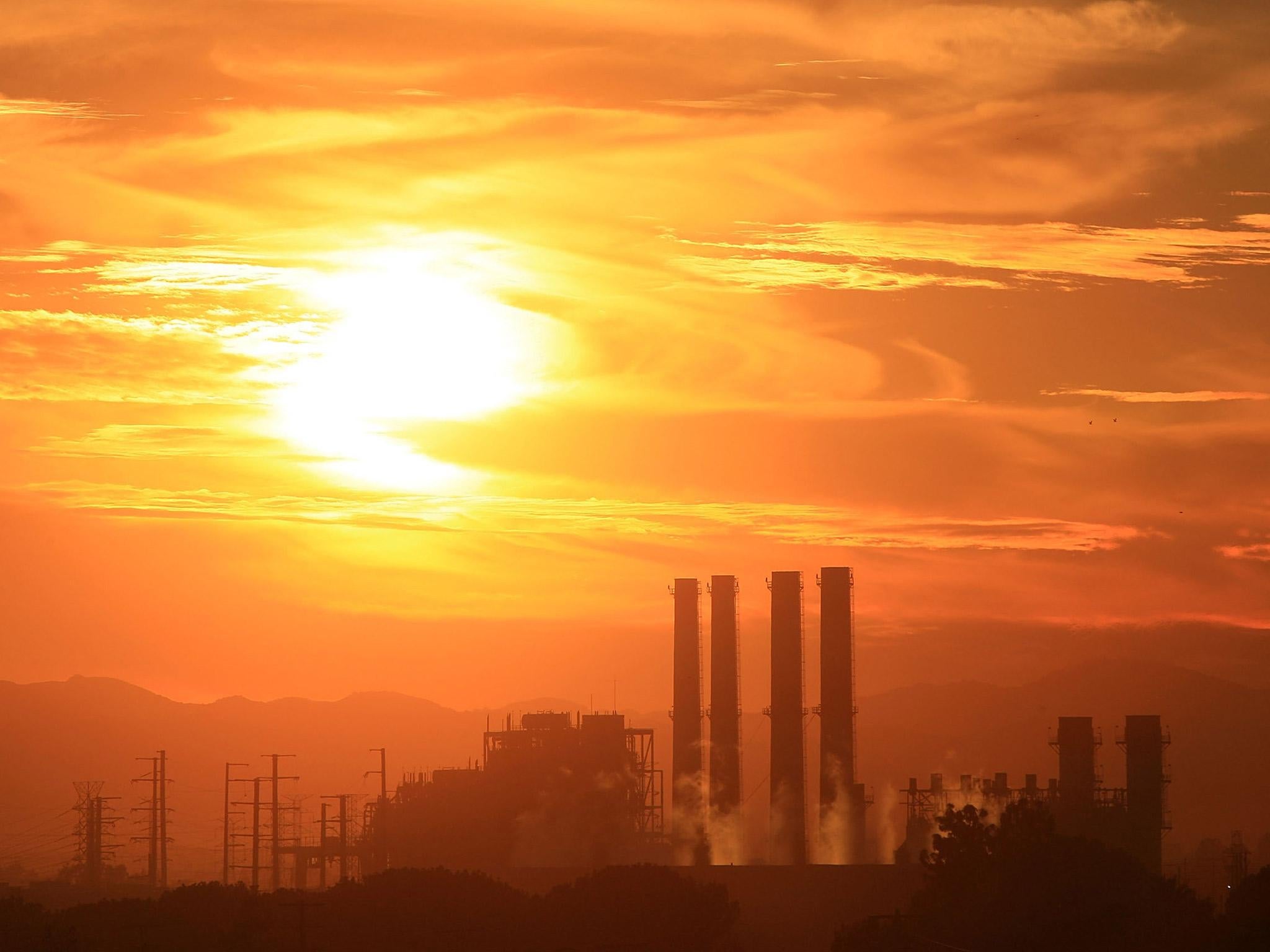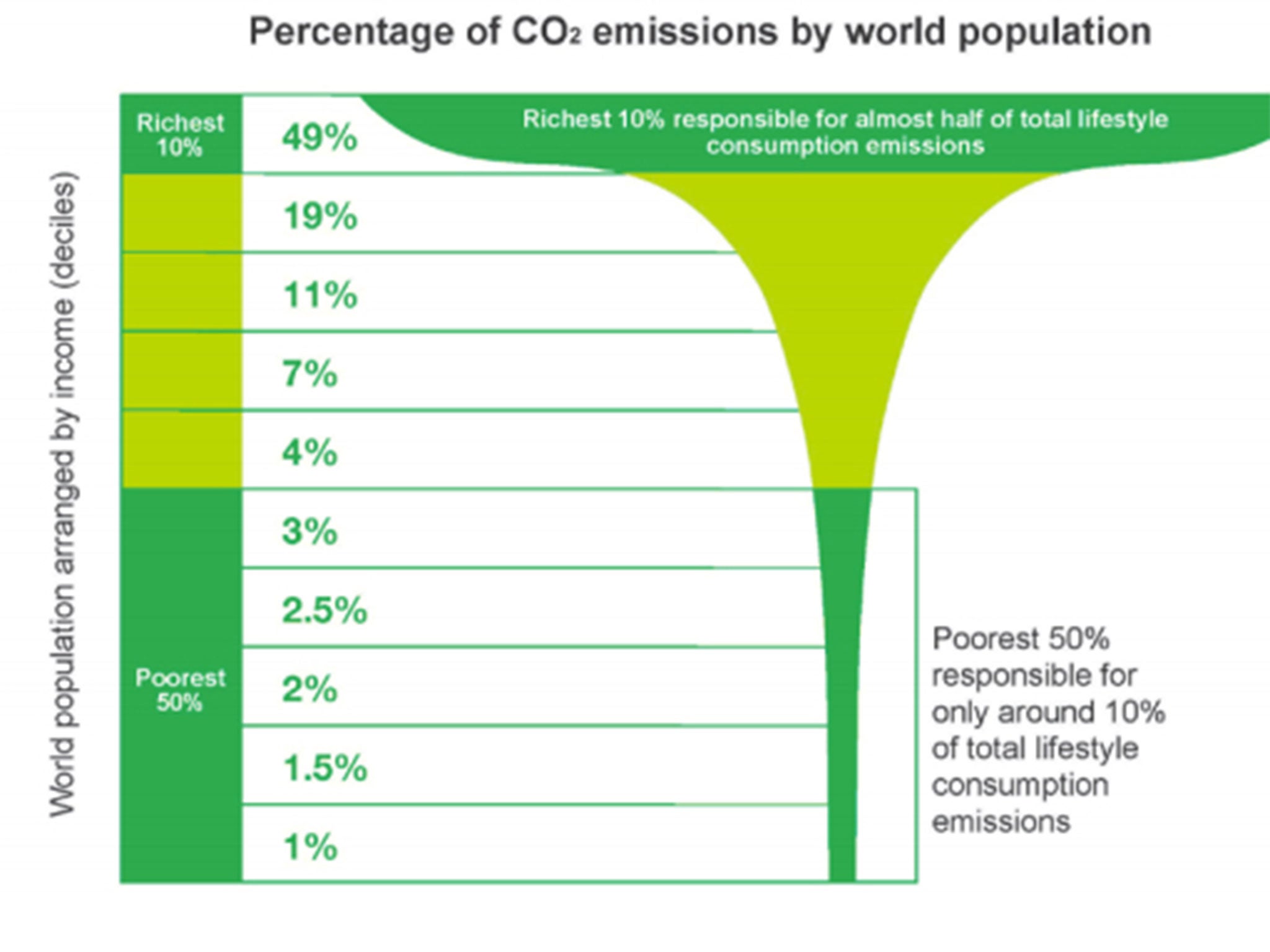COP21: Richest 10 per cent ‘produce half the world’s CO2 emissions’
Oxfam report comes as 150 world leaders descend on Paris for the first day of a two-week UN climate change summit

Your support helps us to tell the story
From reproductive rights to climate change to Big Tech, The Independent is on the ground when the story is developing. Whether it's investigating the financials of Elon Musk's pro-Trump PAC or producing our latest documentary, 'The A Word', which shines a light on the American women fighting for reproductive rights, we know how important it is to parse out the facts from the messaging.
At such a critical moment in US history, we need reporters on the ground. Your donation allows us to keep sending journalists to speak to both sides of the story.
The Independent is trusted by Americans across the entire political spectrum. And unlike many other quality news outlets, we choose not to lock Americans out of our reporting and analysis with paywalls. We believe quality journalism should be available to everyone, paid for by those who can afford it.
Your support makes all the difference.The enormity of climate-change inequality has been laid bare by new research showing that the richest 1 per cent of the world’s population produces 175 times as much CO2 per person as the bottom 10 per cent.
With the serious business of negotiation beginning at the UN Climate Change summit in Paris, Oxfam have published a report showing that, despite the rich causing most of the global warming, it is the poor that must bear the brunt of the consequences.
The richest tenth of the world’s population produce half the CO2 emissions, while the poorest half generate just 10 per cent of them, the Oxfam report says.

“Climate change and economic inequality are inextricably linked and together pose one of the greatest challenges of the 21st century,” said Oxfam’s head of food and climate policy Tim Gore.
“Paris must be the start of building a more human economy for all, not just for the ‘haves’ – the richest and highest emitters – but also for the ‘have-nots’ – the poorest people who are the least responsible for, and most vulnerable, to climate change.”
The majority of the world’s poorest people live in the developing world, where the impact of global warming will generally be much greater – a problem compounded by the lack of money to deal with the problem. But climate-change inequalities also exist within countries in both the developed and the developing world, the report says. Poor people are more vulnerable than rich people in developed countries: for example, the former often can’t afford to take measures such as insulating their homes from rising heat or insuring them against damage caused by storms, which are likely to become more frequent as the world warms.
Meanwhile, rich people in poor countries are much better able to weather any problems that global warming can throw at them, protecting them, for example, from hurricanes, water shortages and the expected increase in diseases such as malaria, the report says. “Rich, high emitters should be held accountable for their emissions, no matter where they live,” said Mr Gore. “But it’s easy to forget that rapidly developing economies are also home to the majority of the world’s very poorest people, and while they have to do their fair share, it is the rich countries that should still lead the way.”
Oxfam called on world leaders to ensure any deal in Paris included money to help poor countries pay for damage from the increase in extreme weather events.
The charity’s report came a day after 150 world leaders, including David Cameron and Indian prime minister Narendra Modi, descended on Paris for the first day of a two-week UN climate change summit. The aim of the summit is to agree decisive action that will limit global warming to 2˚C, beyond which the consequences become increasingly devastating.
Join our commenting forum
Join thought-provoking conversations, follow other Independent readers and see their replies
2Comments